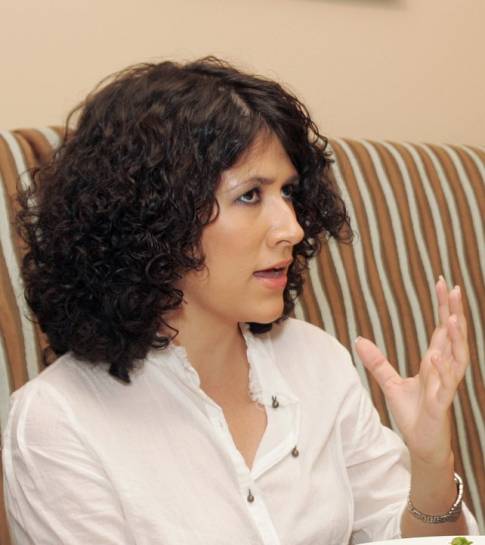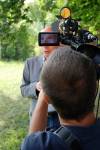|
Elena Albutova
Who doesn´t risk - doesn´t drink the champagne [2] - 10.07.2025
What about the role of a journalist, especially the role of investigative journalists? Everybody can decide for him- or herself why he or she is doing that. I decided to do my best to speak and bring truth to society. In my journalistic opinion, civil courage is one of the main things we should follow. We should always criticize our government, either in a positive or a negative way. In democratic countries the base of power is a collective decision-making with equal exposure of participants to the outcome of the process. But why does journalism still not work as a fourth Estate in all democratic countries?This is a report from M100 Youth Media Workshop in Potsdam which was hold from 22 to 26 August and is part of the prominent annual international media conference known as the M100 Sanssouci Colloquium, which will take place this year in Potsdam, Germany for the sixth time. This year the topic of workshop was Investigative Journalism in Europe.
From young journalists to experts
It has been an eternal question for ages and Maria Spirova (26), social editor at Glamour Bulgaria, tried to find an answer to this question. She studied social criminology in Oxford university. Here are the pros and contras Maria mentioned.
“One big contra is that in many situations it turns up that the effort the journalist has done doesn’t fulfil the result. What I’m saying is that he has put himself at risk. He has gone through records, interviewed secret sources. Probably prompt to his editor especially in countries where there is a lot to investigate but the press is not exactly independent. Basically what an investigative journalist has to do in order to have a good article is so draining on him - it takes so much of his time, energy and resources. In many cases journalists have to pay for their investigations and then at the end they publish the article. For example, in Bulgaria you publish the article in the best possible outcome, but nobody cares. I mean you publish it and nobody is offended to come after you, to kill you…”
“Nothing has changed for the better, too. So you’re still exactly where you started from. Maybe people read it. You don’t know because there is no organised civil society to protest, to show you that you have made a difference and I suppose that journalists are very disappointed. And after you try it one, two, three times, you become convinced how it works. I don’t think you should do investigative journalism at all costs. There are situations in which the cost really is too high. On the other hand we have heard many examples here on the workshop that investigative journalism is actually the only way to stop people being abused if we talk about small children. You have to be able to break this vicious circle. Investigative journalism can make things better. Investigative journalism is a very important institution in itself.”
“Actually you have to play with people’s emotions to get the necessary information and you have to work as police, too. You cause trouble for people if they don’t cooperate.”
“The institution is distrust between the government and the media. If the government will control everything the media has about them, they would be very happy. Civil society - if it functions - does put pressure on the government or on authorities to institute reforms and to correct things that society believes are wrong. You have to play with people’s emotions, but actually it’s very risky.”
“Apparently it is very important not to be too demanding and too aggressive and always speak quietly with a soft voice. It is important always to be as honest as possible about your intention.”
From experts to young journalists: advice for future investigative journalists
Here are some common pieces of advice for present and future journalists from top German investigative journalists with a lot of experience: Marcus Lindemann (autoren(werk), Berlin), Hajo Seppelt (Berlin), Jörg Schmitt (Der Spiegel, Hamburg) and Hans-Martin Tillack (stern).

Jörg Schmitt (Der Spiegel, Hamburg) © Yannick Brusselmans
* Gather and prove the facts
* Use independent official sources and an experts’ point of view
* Check the facts one more time
* Don´t be afraid but don´t do it in case you are not absolutely certain of this
* Name your informers
* Just do it ©
| Total comments: 2 | |
|
| |






